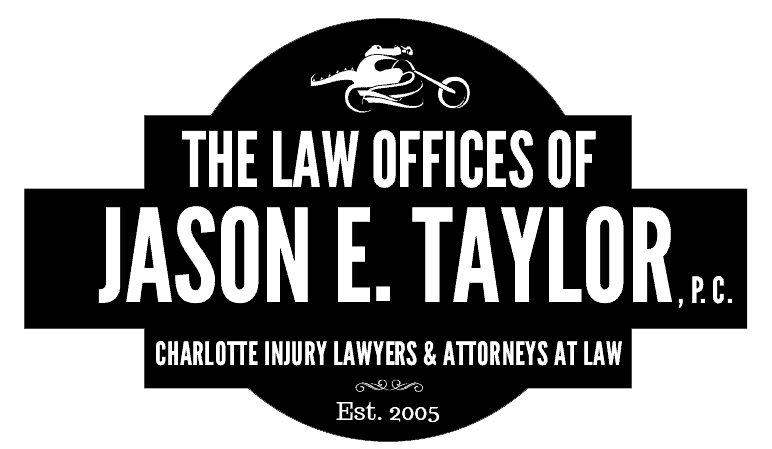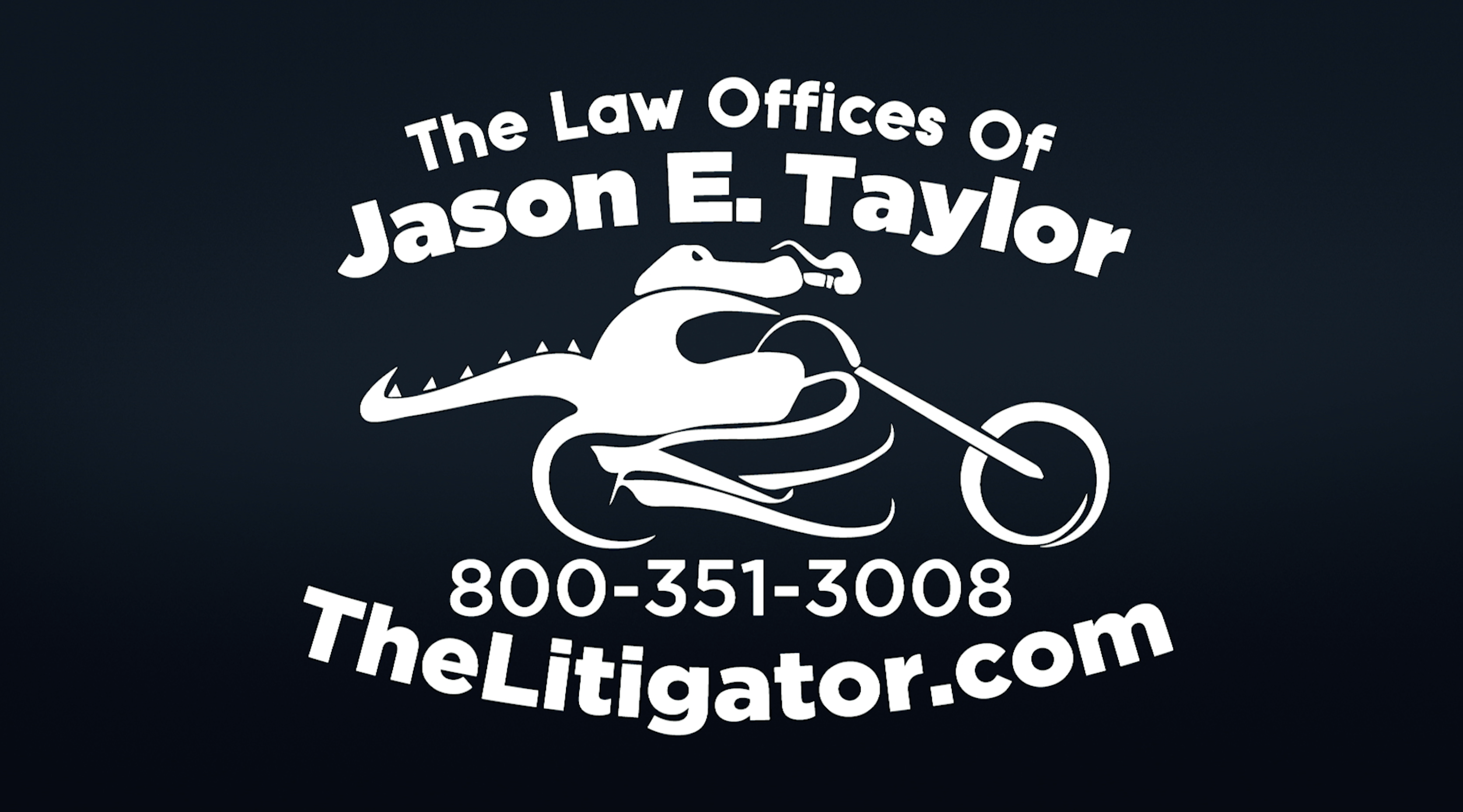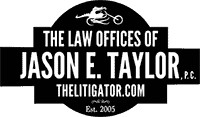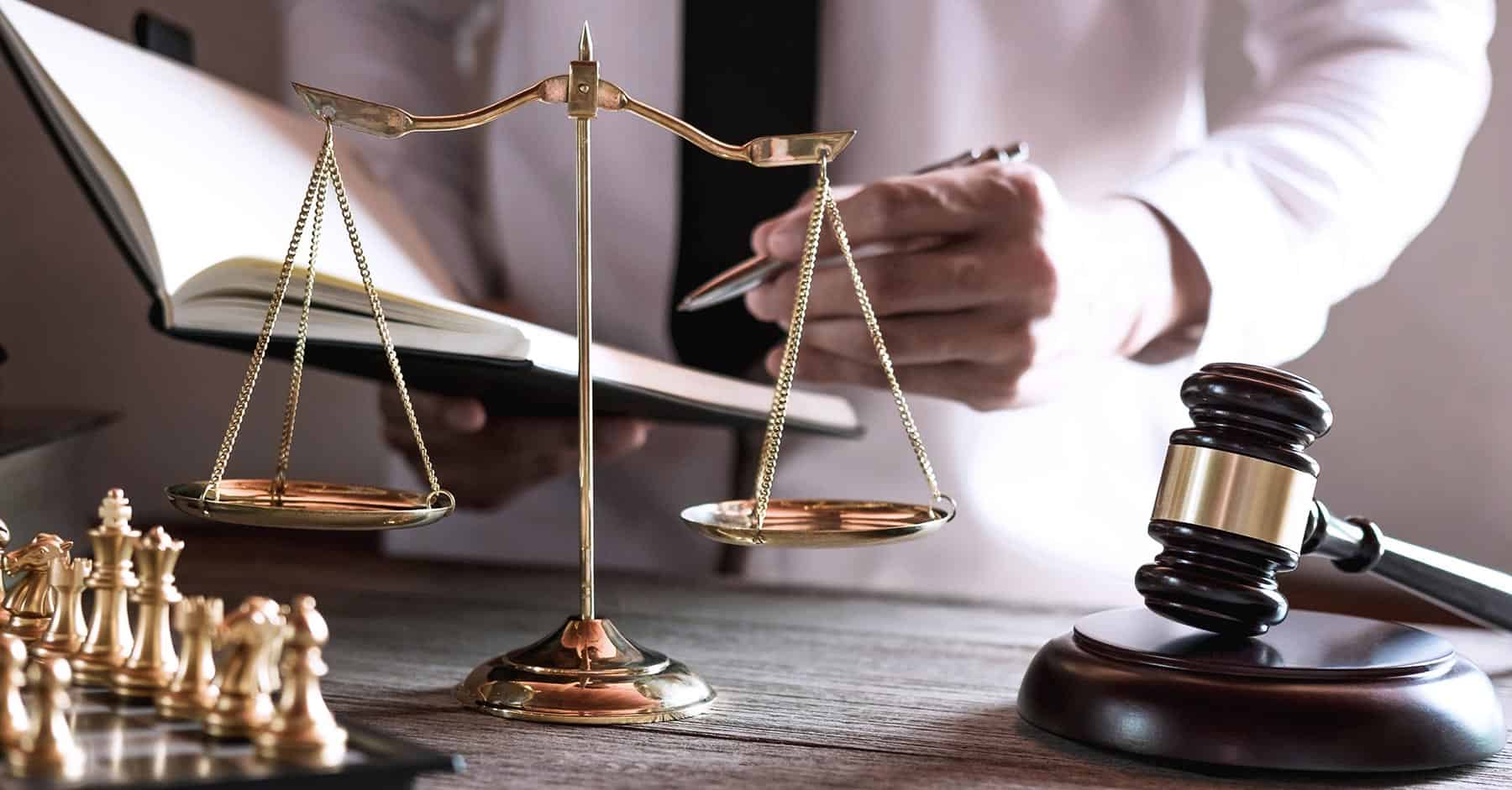Determining who’s at fault in a T-bone accident can be tricky. In most cases, one driver is found at fault. However, both drivers may be at fault in some cases, or a third party could be involved. That’s because several factors can contribute to these accidents.
At The Law Offices of Jason E. Taylor, our Charlotte car accident lawyers have years of experience helping car accident victims get the compensation they deserve. Contact a car accident lawyer today for a free consultation if you have questions about who is at fault in a T-bone accident.
What is a T-Bone Accident?
T-bone collisions, also considered side-impact collisions, occur when one driver collides with the side of another vehicle. These accidents often happen at intersections when one driver fails to yield the right of way. Maybe the other driver ran a red light or a stop sign, putting them in the line of oncoming traffic. They also occur when a driver loses control of their car and skids sideways. T-bone accidents are particularly dangerous because at least one of the cars involved tends to be traveling at a high speed, and there is little to protect the drivers and passengers from injury.
What Causes a T-Bone Car Accident?
Several things can cause a T-bone collision. Some common causes include:
- Running a red light or stop sign
- Distracted driving
- Driving under the influence
- Failing to yield
- Making a left turn in front of oncoming traffic
- Wrong-way driving
How Common are T-Bone Accidents in Charlotte?
There is no exact data for T-bone accidents in Charlotte. However, one of the most common causes of t-bone accidents is wrong-way driving which, according to the NCDOT, occurred almost 100 times between 2018 and 2019 in Charlotte, causing 26 fatalities.
What to Do After a T-Bone Car Accident
If you have been involved in a T-bone car accident, there are a few things you should do:
- Get medical attention. Even if you don’t think you’re injured, it’s important to get checked out by a doctor. Some injuries, such as whiplash, may not be immediately apparent.
- Contact your insurance company. Let them know what happened and provide them with any information they need.
- Contact a personal injury lawyer. A car accident attorney can help you file a claim and get the compensation you deserve.
Types of T-Bone Car Accident Injuries
The types of injuries that can occur in a T-bone accident vary depending on the vehicle’s speed and the amount of protection offered by the car. Some common injuries include:
Whiplash
Whiplash is a type of neck injury that can occur in any accident but is particularly common in T-bone car accidents. It occurs when the head and neck are suddenly jerked forward and back again. This often causes damage to the muscles, ligaments, and tendons in the neck.
Broken Bones
Broken bones are another common injury in a T-bone crash. When two cars collide, the force of the impact can cause the drivers and passengers to be thrown around inside the car or even out of the vehicle. This can lead to broken bones, particularly in the arms and legs.
Back, Chest, and Pelvic Injuries
Back, chest, and pelvic injuries are some of the most serious types of injuries that can occur in a T-bone accident. These injuries can be life-threatening and often require surgery. They occur when the driver or passenger is thrown against the dashboard or another hard surface in the car.
Concussions
Concussions are caused by the sudden movement of the head, which can cause the brain to hit against the inside of the skull. This can lead to various symptoms, including headaches, dizziness, nausea, and confusion.
Airbag Injuries
Airbag injuries occur when the airbags in a car deploy during an accident. They can cause a range of injuries, including burns, lacerations, and broken bones.
Liable Parties in a Charlotte T-Bone Accident
In any car accident case, determining who is at fault is a key part of the process. In most cases, the driver who caused the accident is found liable. However, there may be other factors that contribute to liability. Such as:
The Vehicle Manufacturer
In some cases, the car’s manufacturer may be found liable for a T-bone accident. This is usually the case if there is a defect in the vehicle that contributed to the accident. For example, if the brakes failed or the airbags did not deploy properly.
A Third Party
A third party can also be liable in a T-bone accident. This could be a driver that makes a left turn on red, putting themselves in front of an oncoming car, causing that driver to swerve to avoid the collision, making them hit another vehicle. It is likely the driver who made the illegal turn would be liable for damages in this situation.
Contributory Negligence in North Carolina
North Carolina is one of very few states that follows the contributory negligence doctrine. This doctrine states that if a driver is found to be even partially at fault for the accident, they are not entitled to any damages. This means if you are partially at fault for the accident in any way, you will not be able to recover any damages from the negligent party.
How Your Charlotte Personal Injury Lawyer Will Prove Liability
Your Charlotte personal injury lawyer will investigate the accident to try and determine who is liable. They will look at factors such as police reports, witness statements, and any cameras that may have captured the traffic accident, including any possible dash-cams. Depending on the nature and severity of the alleged injuries, they may also consult an expert’s opinion to try and prove that the other driver was at fault.
How Do I Prepare for My Case?
There are a few things you can do to ensure your claim is successful:
- Make sure you have all of your medical bills and receipts.
- Keep a record of any lost wages.
- Document the pain and suffering you have endured.
- Take pictures of the accident scene and the vehicles involved.
- If there were any witnesses, get their contact information.
- Get a copy of the police report.
Damages You Can Recover in a T-Bone Car Accident Claim
If you are successful in your T-bone collision accident claim, you may be entitled to a range of damages. These could include:
Medical Expenses
You can claim any medical bills that you have incurred due to the accident. This could include hospitalization, surgery, rehabilitation, and medication costs.
Lost Wages
You can also claim any lost wages that you have suffered due to the accident. This could include the wages you have missed out on due to being unable to work, as well as the money you will lose in the future if you are unable to return to work.
Pain and Suffering
You can also claim the pain and suffering you have endured as a result of the accident. This could include physical pain, mental anguish, and emotional distress.
Wrongful Death
If someone has died due to the accident, you can make a wrongful death claim. This could include damages such as medical expenses, funeral costs, and loss of income for your family member.
Factors That Impact Your Settlement
Your settlement in a T-bone accident will be based on several factors. The first is who is found at fault for the accident. If you are found to be at fault, even just 1%, you will not recover compensation. Another factor that can impact your settlement is the severity of your injuries. If you sustained serious injuries, you would likely receive a higher settlement than if your injuries were minor.
The final factor that can impact your settlement is the drivers’ insurance policies. If one or both drivers do not have insurance, your settlement may be lower than if both drivers had applicable insurance.

Contact an Experienced Personal Injury Lawyer in Charlotte Today
Our auto accident attorneys have experience with all personal injury cases, including car accidents. We are not afraid to take on insurance companies to help you obtain fair compensation. We value the attorney-client relationship and will work tirelessly to protect your rights.
Contact The Law Offices of Jason E. Taylor today for your free initial consultation and learn more about what we can do to help you. We will answer your questions and explain your legal options.









